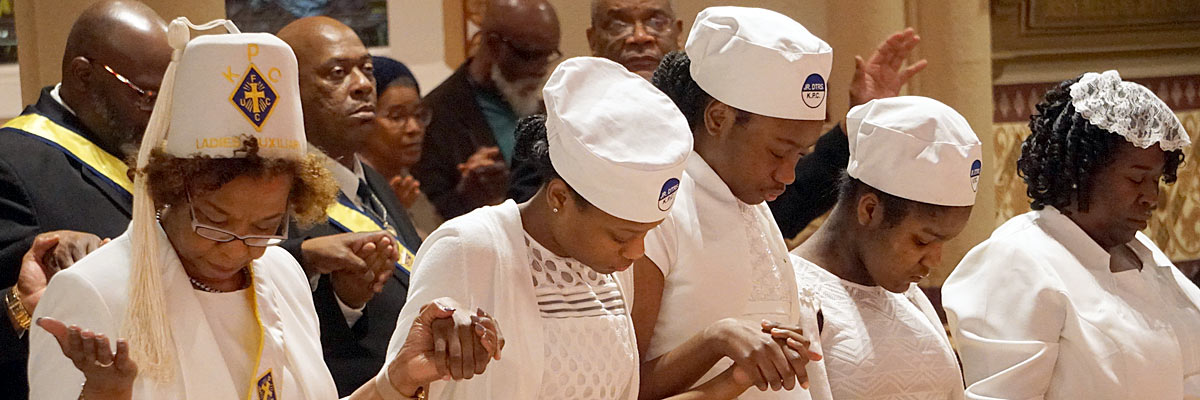Official Website of the
Catholic Diocese of Little Rock
Daily prayer may be a struggle at times, but is worth the commitment
Published: September 3, 2005
By Judy Hoelzeman
My mother used to say to us, “How do you kids think you’re ever going to get to heaven if you don’t pray?” This rhetorical question came up when we complained about having to go to Wednesday night devotions. Going to church in the winter months was not so bad, but during the summer, playing “Kick the Can” with our neighbors was infinitely more appealing than church. Eventually I understood what my mother was trying to say: that my life was not going to be very satisfying without prayer. I learned what the Bible says about prayer. We should pray constantly (Ephesians 6:18); pray without ceasing (Thessalonians 5:17); pray perseveringly, and in a spirit of thanksgiving (Colossians 4:2). Acts tells us that prayer should characterize any Christian community as it describes the disciples after Jesus’ ascension: “They devoted themselves to constant prayer.” The letter of James says, “The fervent petition of a holy man is powerful indeed.” Jesus himself taught prayer by example. As a faithful Jew, he invoked God’s blessing and help in all situations, from mundane daily activities, to the most crucial situations of life. But learning about prayer did not necessarily make me a better “prayer.” I still struggle with really committing myself to a daily time of prayer. I have learned one type of prayer that is very effective in its simplicity. I’ll call it the “Trinitarian Prayer,” although that may not be its official name. Every time we recite the creed, we profess our belief in the Father as creator, the Son as redeemer, and the Holy Spirit as one who dwells within us, sanctifying us as we live our lives. This prayer addresses all three persons of the Trinity. The prayer can be used at night, although it is not as thorough as what Christianity calls an “examen,” it is a good way to review the day. First, address God the Father, and pray in thanksgiving for the best thing about the day that is ending. For what are you most grateful? Sometimes it might be one obvious and very meaningful blessing, something you badly needed, or badly wanted, and received. At other times, you might thank God for very simple things like a good supper and a friend’s phone call. Next, bring to mind the worst, or most painful part of your day, addressing Jesus, our most merciful redeemer. Here, ask for healing or forgiveness. This part of the prayer can make you feel very vulnerable, because it may mean admitting specific wrongs you have done to others. Or you might pray for healing from harmful attitudes, habits or emotions, or even for physical healing. It certainly helps to remember that Jesus was human and knows our human weaknesses, and what it feels like to suffer. Third, think about the day to come. What will be most difficult? What are you most likely to need help with? Pray to the Holy Spirit for guidance in that endeavor or in that situation. The prayer can be used by individuals, couples or families. In family settings, where it is prayed aloud, the prayer encourages self-reflection, honesty and tolerance. It also opens the door to forgiveness and discourages grudges. It challenges us to make changes as well. After all, it’s embarrassing to keep asking forgiveness for the same things! I suppose, though, that Jesus understands that, too. Judy Hoelzeman is a member of St. Edward Parish in Little Rock.









